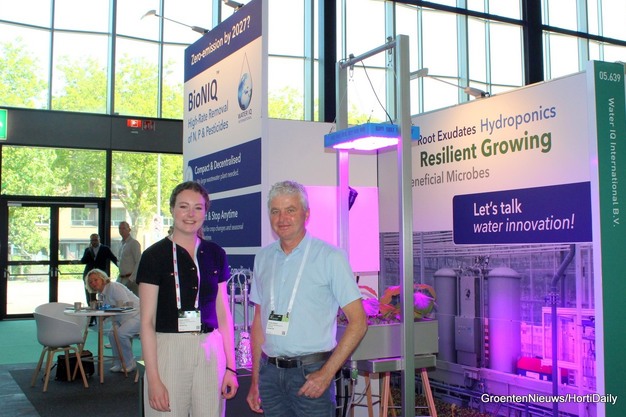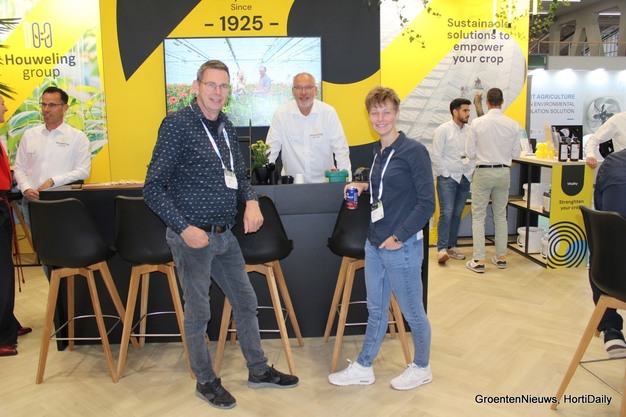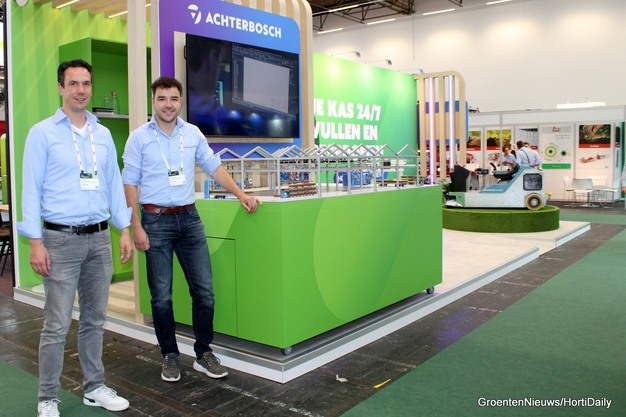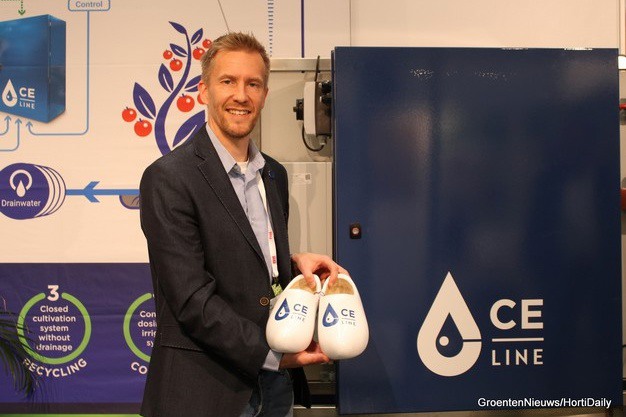With prizes awarded, photos taken, and stands dismantled, it's time to reflect on GreenTech Amsterdam 2025. The main takeaway from the event is that while there are plenty of techniques available to help growers overcome challenges, many aren't yet suitable for practical use. Additionally, geopolitical uncertainties continue to affect the market, hampering investment efforts.
 © Thijmen Tiersma | MMJDaily.com
© Thijmen Tiersma | MMJDaily.com
Back at the fair: Water IQ, featuring a new cultivation system. View the full photo report here.
Trump
It's tempting to say that Trump was the most talked-about person on the stock market, but that might give the unpredictable American president more credit than deserved. Interestingly, people in North America seem to be getting used to Trump's unpredictability, and the market is adapting to the associated uncertainty.
It's also noteworthy that companies are exploring ways to handle import tariffs. One strategy is to establish branches in strategic locations. In recent years, several European companies have opened branches in the United States, Canada, and Mexico. Conversely, some North American companies are considering setting up in Europe. Additionally, businesses in Spain are reportedly eyeing South America as a promising market, given the increasing uncertainty in North America.
 © Annet Breure | MMJDaily.comGrowers at the fair is also a recurring theme. Houweling Group was visited by Peter Duijvestijn and Kim Oosterom from Duijvestijn Tomatoes. View the full photo report here.
© Annet Breure | MMJDaily.comGrowers at the fair is also a recurring theme. Houweling Group was visited by Peter Duijvestijn and Kim Oosterom from Duijvestijn Tomatoes. View the full photo report here.
Middle East
Another region garnering significant attention at the fair was the Middle East. While this wasn't due to new conflicts between Israel and Iran, many delegations from oil-rich countries attended to learn about innovations and investment opportunities. In the United Arab Emirates, for instance, there is a focus on strategies to cope with extreme heat, which is crucial for successful agriculture in desert climates. Similarly, in Spain, companies are exploring ways to manage increasingly challenging climate conditions, with even less traditional greenhouse crops now being cultivated indoors. Technology suppliers are also noticing growing interest from West Africa, where businesses are turning to greenhouses to combat drought, benefiting from the region's abundant and affordable labor force.
 © Thijmen Tiersma | MMJDaily.com
© Thijmen Tiersma | MMJDaily.com
Also back at the fair: Achterbosch Machinebouw. Job Kienhuis and Nick van Deth thought it was high time for a return to the spotlight. View the full photo report here.
Labor and crop protection
Overall, the market is shifting towards more covered cultivation, which benefits the technology companies at GreenTech Amsterdam. While there's a strong focus on high-tech solutions, mid- and low-tech companies can also gain from innovations, especially in areas like labor and crop protection. Additionally, in the substrate sector, there's growing interest in materials like charcoal, cotton, and jute, either as part of substrate mixes or as complete alternatives to peat.
Labor and crop protection are concerns in nearly every market. Even in low-wage countries, labor costs are rising, and pests and diseases can affect both high-tech and low-tech greenhouses. Energy and water issues were also prominent topics at the fair, along with LED lighting. Additionally, the market is closely watching Osram's legal battle over alleged patent infringements, which has been a significant topic of discussion.
Robots
The fair showcased many new developments, but no major breakthroughs in any particular area. Familiar robots were on display for tasks like scouting, crop protection, harvesting, and leaf cutting. Compared to a few years ago, the market is gaining more confidence in using robots, as they are becoming more common in greenhouses. However, there still hasn't been a robot that has completely convinced everyone of its capabilities.
 © Thijmen Tiersma | MMJDaily.com
© Thijmen Tiersma | MMJDaily.com
GreenTech Amsterdam is an international fair, but with a distinctly Dutch touch. View the full photo report here.
